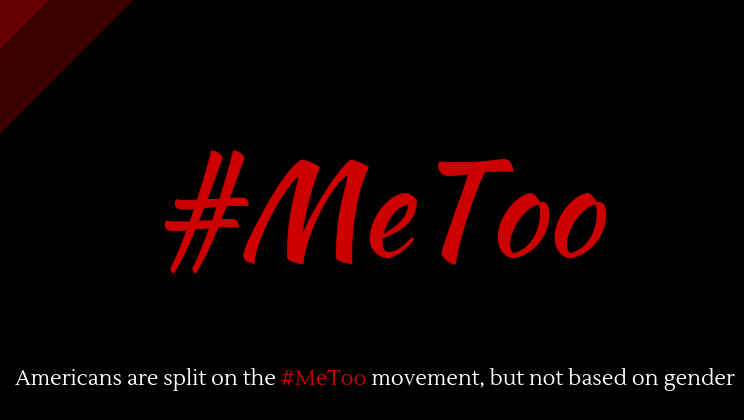Americans are split on the #MeToo movement, but not based on gender
Posted by Josh Taylor / November 2, 2018
The #MeToo movement has undoubtedly had a massive impact on American society. It might take decades to determine exactly what kinds of changes resulted from #MeToo. But a recent NPR-Ipsos Poll reveals that Americans are divided on the #MeToo movement. But the divide isn’t along the lines you might think. You might assume that it’s based on gender, but it’s not. Rather, Americans are (perhaps unsurprisingly) split based on political party. Here are some interesting takeaways from the study:
- 69 percent of the more than 1,000 Americans surveyed say the #MeToo movement has forged a climate of accountability among offenders. On the other hand, 40 percent of those surveyed feel that #MeToo has gone too far.
- But that data is skewed based on partisan differences. Only 21 percent of Democrats said that the #MeToo movement has gone too far, but 75 percent of Republicans said that it has gone too far. Compare this gap to that between the sexes: only 36 percent of women say it’s gone too far but 51 percent of men say that it’s gone too far.
- When it comes to the question of false accusations, the divide is even more stark. A whopping 77 percent of Republicans believe that false sexual assault accusations are common. Only 37 percent of Democrats think that those are common.
- On a similar note, about 85 percent of Democrats believe that victims should be given the benefit of the doubt, while just 67 percent of Republicans believe that.
- 85 percent of Democrats agree that alleged victims of sexual assault should get the benefit of the doubt, while 67 percent of Republicans agree.
The #MeToo movement sheds further light on the growing partisan divide in the country. You have probably noticed on your Facebook feed or even in your friend groups that logic and reason has taken a back seat to us-versus-them politics and extreme discussion. By extreme discussions, I mean the kind of discussion in which the participants feel, for whatever reason, that they have to tend to the extreme end of their side of the argument. So instead of listening to each other, or instead of trying to get to the truth of whatever matter is under discussion, the participants end up painting each other, and themselves, into corners.
The #MeToo movement has done excellent work to bring sexual predators to justice, we shouldn’t forget that. But we also shouldn’t forget that this movement is about justice, not about extremes. It’s about humanizing the victims of sexual assault, not about dehumanizing the people across the aisle.
Comments are off for this post.